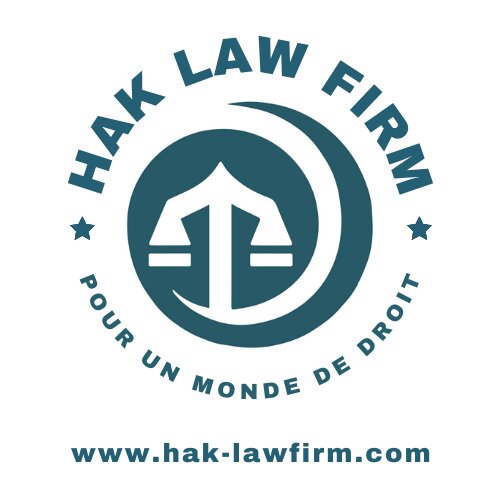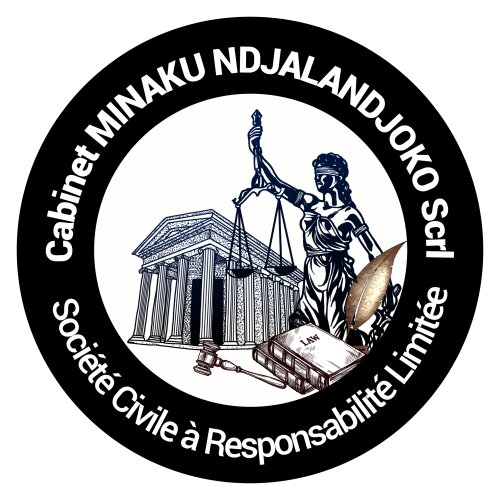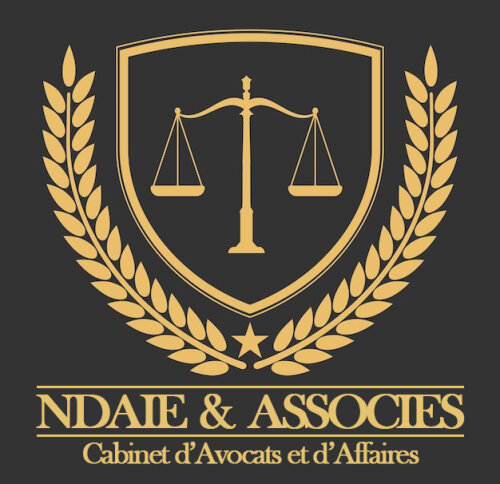Best Health Care Lawyers in DR Congo
Share your needs with us, get contacted by law firms.
Free. Takes 2 min.
Or refine your search by selecting a city:
List of the best lawyers in DR Congo
About Health Care Law in DR Congo
The Democratic Republic of Congo (DR Congo) is a nation with unique healthcare challenges and opportunities. Its legal framework for healthcare is designed to ensure that all citizens have access to essential health services. The legal system aims to regulate the quality of healthcare, the rights of patients, and the responsibilities of medical professionals and institutions. Healthcare laws in DR Congo cover areas like public health, medical malpractice, pharmaceuticals, and hospital management, forming a complex yet crucial aspect of the nation's legal landscape.
Why You May Need a Lawyer
There are several scenarios where individuals might need legal assistance in the healthcare sector in DR Congo:
- Medical Malpractice: If patients suspect negligence or misconduct during medical treatment, legal guidance is critical to navigate the process of filing a claim.
- Dispute Resolution: Legal conflicts between healthcare providers and patients or between different medical entities might require professional mediation and legal advice.
- Rights Violations: When patient rights are compromised, whether through inadequate service delivery or breach of confidentiality, a lawyer can help assert these rights legally.
- Regulatory Compliance: Healthcare facilities and professionals must adhere to specific regulations; legal counsel can ensure compliance and help avoid legal issues.
- Insurance Claims: Conflicts with health insurance companies over claims and coverage might necessitate legal intervention to protect consumer rights.
Local Laws Overview
The healthcare legal framework in DR Congo is guided by several important laws and regulations:
- Public Health Code: This sets standards for health and safety across public and private sectors.
- Hospital Law: Dictates the functioning, responsibilities, and ethics governing hospital operations.
- Pharmaceutical Legislation: Regulates the control, distribution, and quality assurance of medicines and medical devices.
- Patient Rights and Responsibilities: A delineation of patient rights including the right to access care, confidentiality, and informed consent.
- Occupational Health Regulations: Ensure the safety and health of healthcare workers in the workplace.
Frequently Asked Questions
What are my rights as a patient in DR Congo?
Patients have the right to receive safe and adequate medical care, be informed about their health condition, consent to or refuse treatment, maintain privacy and confidentiality, and formally lodge complaints against healthcare providers.
How do I file a complaint against a healthcare provider?
Complaints can be submitted to the healthcare institution directly or through the Ministry of Health. Engaging a lawyer may help streamline this process and ensure the complaint is appropriately addressed.
What should I do if I'm a victim of medical negligence?
Seek an assessment from a different accredited medical professional as evidence, document all experiences and interactions, and consult a lawyer to explore legal options and potentially file a malpractice claim.
Are there organizations that provide support to patients?
Several NGOs and patient advocacy groups offer support and advice. These organizations often have legal experts to guide patients through healthcare-related legal challenges.
How do I ensure a healthcare facility is compliant with local regulations?
Verify its registration with relevant health authorities and review compliance certifications. Legal assistance might be needed for thorough inspections or assessments.
Can health insurance companies deny claims arbitrarily?
While insurance companies have policies dictating claim approvals, patients have the right to appeal denials and should consult legal advice if claims are unjustly refused.
What regulations exist for pharmaceutical products?
The DR Congo has strict regulations controlling pharmaceutical approval, distribution, and safety standards. Breaches can be reported to the Ministry of Health.
What is considered illegal concerning patient confidentiality?
Unauthorized sharing of personal health information is illegal. Legal actions can be pursued if confidentiality agreements are breached.
Do healthcare professionals have specific legal protections?
Yes, they are protected under labor and employment laws, including occupational safety regulations. Legal advice can help clarify specific situations where these protections come into play.
How can I participate in improving healthcare laws?
Engage with health rights advocacy groups or participate in public consultations related to health legislation. Legal experts often help in detailing proposals and drafting reforms.
Additional Resources
Consider the following resources for additional information and help regarding healthcare legal matters in DR Congo:
- Ministry of Public Health: Oversees healthcare services and regulations.
- Legal Aid Centers: Offer consultation on legal healthcare issues.
- World Health Organization (WHO) DR Congo Office: Provides health-related data and insights.
- National Council of Doctors: Governing body for medical professionals.
Next Steps
If you find yourself needing legal assistance in healthcare, start by identifying the specific nature of your issue. Gather all the necessary documentation and evidence related to your situation. Consulting a local legal expert with experience in healthcare law is advisable. They can offer tailored advice, represent you in disputes, and help navigate complex legal systems. Furthermore, explore and leverage governmental and nongovernmental resources to support your legal journey.
Lawzana helps you find the best lawyers and law firms in DR Congo through a curated and pre-screened list of qualified legal professionals. Our platform offers rankings and detailed profiles of attorneys and law firms, allowing you to compare based on practice areas, including Health Care, experience, and client feedback.
Each profile includes a description of the firm's areas of practice, client reviews, team members and partners, year of establishment, spoken languages, office locations, contact information, social media presence, and any published articles or resources. Most firms on our platform speak English and are experienced in both local and international legal matters.
Get a quote from top-rated law firms in DR Congo — quickly, securely, and without unnecessary hassle.
Disclaimer:
The information provided on this page is for general informational purposes only and does not constitute legal advice. While we strive to ensure the accuracy and relevance of the content, legal information may change over time, and interpretations of the law can vary. You should always consult with a qualified legal professional for advice specific to your situation.
We disclaim all liability for actions taken or not taken based on the content of this page. If you believe any information is incorrect or outdated, please contact us, and we will review and update it where appropriate.
Browse health care law firms by city in DR Congo
Refine your search by selecting a city.
















